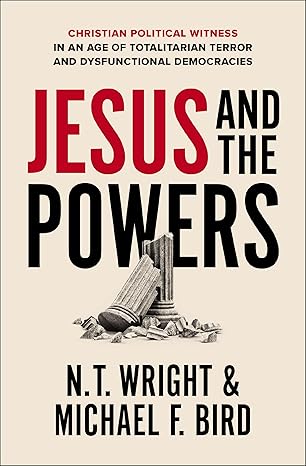
Delighting in God
Many people believe in God and believe that God is everywhere, but they have yet to experience his presence. 'Delighting in God' is the message Tozer intended to be the follow-up to ‘The Knowledge of the Holy’. He demonstrates how the attributes of God—those things God has revealed about himself—are a way to understand the Christian life of worship and service. We are here to serve and adore him, but we can only fulfill that role by acknowledging who he is, which is the essence of the Christian life and the source of all our fulfillment, joy, and comfort. To understand who we are, we need to understand who God is. His very character and nature are reflected through us. Unless we fully grasp who we are, we'll never become all God wants us to be.
BEST DEALS
About the Author
Aiden Wilson Tozer was an American evangelical pastor, speaker, writer, and editor. After coming to Christ at the age of seventeen, Tozer found his way into the Christian & Missionary Alliance denomination where he served for over forty years. In 1950, he was appointed by the denomination's General Council to be the editor of 'The Alliance Witness'. Born into poverty in western Pennsylvania in 1897, Tozer died in May 1963 a self-educated man who had taught himself what he missed in high school and college due to his home situation. Though he wrote many books, two of them, 'The Pursuit of God' and 'The Knowledge of the Holy' are widely considered to be classics.
Read Sample
Chapter 1 : The Reality of Our Perception of God
O God, my heart pants for Thee as David’s of old did. I long to know Thee in all the beauty of Thy self-revelation and in all of Thy perfection. The way into Thy heart may be difficult and treacherous, but I can bear the difficulties as long as I discover in them the fullness of Thy character and nature. Amen.
Whenever you find a man of God, you will also find an overwhelming passion for God that is almost beyond control. Not a curiosity about God, but a deep passion to experience God in all of His fullness. To know God is the one passion that drives a man into the very heart of God.
Our Bible abounds with Scriptures highlighting this very passion. Indulge me two of my favorites.
David passionately writes:
As the hart panteth after the water brooks, so panteth my soul after thee, O God. My soul thirsteth for God, for the living God: when shall I come and appear before God?
Psalm 42:1–2
As far as I am concerned, these verses sum up the heartbeat of the man David, whom God says was a “man after His own heart.” David had many things in his life and was not a perfect man by any stretch of the imagination, yet I can safely say that his hunger for God was the thing that lifted him above everyone else and made him a man after God’s own heart.
David desired God at any cost, and reading his story, we discover what that cost was.
In the New Testament, we have a man by the name of Paul, who wrote:
That I may know him, and the power of his resurrection, and the fellowship of his sufferings, being made conformable unto his death; if by any means I might attain unto the resurrection of the dead.
Philippians 3:10–11
To know God was the overwhelming passion of the apostle Paul, and nothing else in his life mattered, neither life nor death. If we can understand a man’s passion, we can begin to understand why he does or does not do certain things. This passion for God was not a casual thing. To truly know God as He desires and deserves to be known is not a casual thing, but a lifelong pursuit that ends only when we see Him face-to-face.
I have used the word passion, and I need to explain myself. Passion can be defined in two ways. First, there is the passion of the heart, and then there is the passion of the mind. Often these two are confused or used interchangeably. The difference is that the passion of the mind is swayed by outside influences, whereas the passion of the heart delves into the deep things of God. John the Beloved wrote, “Greater is he that is in you, than he that is in the world” (1 John 4:4). The passion of the heart has the greater power in a person’s life—the power to transform into true godliness that which is acceptable to God and meets His requirements.
Unfortunately, most people waste their passion on temporal things, such as sports, entertainment, vacations, whereas the man or woman of God focuses on that which can truly satisfy the heart. The ways of passion undermine our integrity. Our passion for God should lift us above the elements of the world into the heavenly spheres, where God’s praise is supreme.
I need to point out that there are three basic levels of knowing God.
First is the intellectual level. This is based entirely upon the evidence at hand. Later on, we will examine the idea that we can find God in nature. However, the intellectual level is where we begin. God gave us a mind and expects us to use it, especially in the area of knowing Him. Scientists have explored our world in great detail, and all you need to do is examine the evidence.
The intellectual level goes only so far. The next level is theological. This is organizing truth into what we call doctrine. Theology is great, and I believe in theology, which is simply the study of God. What could be more exciting than that?
All theology must be based upon the Word of God. Theology is not an end in itself, but rather points to the One who is greater than theology. When theology becomes an end in itself, it ceases to be a way into the knowledge of God.
What people need today is truth—truth organized in a way that allows us to understand what God is about. The primary problem with theology is that we have organized it according to man’s prejudice. Theology should be the study of God, not our human interpretation of God. That is where we encounter problems. Is God a Calvinist or is He an Arminian? According to some theology, you must be one or the other.
We have the intellectual level and the theological level, but that is not enough. Let’s move on to what I call the mystical level.
I always get in trouble when I use the word mystic. I know this word has been abused and misused, but I am not afraid of controversy. I think the word mystic covers quite nicely what I am trying to say.
Down through the years there have been great evangelical mystic writers. These writers were so in tune with God that all of them, without exception, suffered persecution at the hands of church authorities. Their concept of God was so pure and lofty and holy, the average person could not grasp it.
When I talk about the mystical level of knowing God, I am speaking of that which pierces the Cloud of Unknowing—the area that cannot be discerned by human knowledge and understanding, that rises above the intellect and even theology and goes into the area of experiencing the presence of God. Brother Lawrence put his thoughts about this in his book Practicing the Presence of God. This is what the mystical level is all about.
Yes, we need to have an intellectual level first. And yes, the theological level is necessary to keep within the confines of the revealed Word of God. But all of that leads us deeper and higher, if you please, into the very heart of God. If I am going to know God, I need to penetrate the manifest presence of God, where His character and nature have been revealed to me in never-ending wonder and amazement.
It is simply not enough to know about God. We must know God in increasing levels of intimacy that lift us above all reason and into adoration and praise and worship.
David was a man who understood this. He was a man after God’s own heart. In spite of that, he was a man of like passions like the rest of us. He had feelings, problems, and difficulties. But in spite of all his human weaknesses, David had a passion for God that lifted him above all of his mistakes and weaknesses and brought him into the very heart of God himself. Oh, that we would be like David, a man after God’s own heart.
Reading through David’s Psalms always leaves me with a hunger and desire for God. It is not so much a man’s journey that defines him, but his destination, and David’s destination was God. David was not searching for a better life. He was searching for God. He was not looking for recognition, acclaim, or possessions. He was searching for God. Some of that stuff got in his way, but in the end, David’s passion for God won out.
In the New Testament, we have the apostle Paul, who was a man of reason, a well-educated man in his day, and one of the top Pharisees in Israel. He was going places as far as his religious aspirations were concerned. He was deeply devoted to his career and had reasoned himself down the pathway to success.
In looking at Paul’s life, none of his reasoning truly satiated his heart. An emptiness within spurred him on, only to be left empty once more. It was on the road to Damascus that Paul reached the end of reason and encountered God. He discovered God, and from that moment on, the passion of his heart can be summed up in the phrase “That I may know Him.” No matter what else we know about Paul, if we know this, we begin to understand the real passion of his heart and why he did some of the things he did.
Paul’s statement in Philippians 3:10–11 sums up the essence of his passion for God:
That I may know him, and the power of his resurrection, and the fellowship of his sufferings, being made conformable unto his death; if by any means I might attain unto the resurrection of the dead.
To know God was Paul’s passion, and nothing else really mattered to him. Three things helped Paul focus on God (from the Scripture quoted above).
The first was “the power of his resurrection.”
Becoming a Christian is not just nodding to a few truths and then saying, “I accept Jesus.” It is infusing into your life the divine power, the same power that raised Jesus from the dead. This is the tremendous work of the Holy Spirit to bring you into the divine world of redemption.
The second was “the fellowship of his sufferings.”
This was Paul’s identification with the Christ who died on the cross and rose the third day. What Paul meant by this was that his Christianity was a result of his relationship with God. And Paul was willing to follow Him at all costs. This passion of Paul got him into a lot of trouble. I think I can safely say that Paul’s attitude was that Christ’s enemies were going to be his enemies and Christ’s friends were going to be his friends.
Paul did not expect the world to treat him any better than people treated Christ. They crucified Christ, and they finally killed the apostle Paul. All of this was the result of his love for God that could not be satisfied with anything but God himself.
Paul’s third focus was “being made conformable unto his death.”
This was the key to the apostle Paul’s ministry and the passion he had for God. When Jesus died on the cross, it was for our sin. Paul speaks of putting “self” on the cross to free oneself from sin. It was his desire to bring his life into conformity with the death of Jesus Christ so that the resurrection power of Christ could usher him into worship and praise.
These two men, David in the Old Testament and Paul in the New Testament, started out from different points of view. They could not have been more different, and no two could have merged into one holy passion for God as they did. A person is known by the passion that drives him day after day through thick and thin.
What is needed today is passion, but more defined, a passion for God, a deep desire to know God as He desires to be known. What I see lacking today is this desire to know God on a personal basis. Other things crowd this relationship out until it is barely recognized in the church today.
In the evangelical church, we seem to have a great deal of passion for everything but God. We look around for activities that consume the resources of our lives. Instead of looking around at the world, we need to look up to the source of our redemption. We are so caught up with all the modern gadgets and methods that we have lost our passion for God.
I need a passion for God that penetrates that thick exterior known as the world, designed by the enemy to keep me away from God. Examining the conditions today, it is apparent our enemy has done a good job of establishing a wall between God and us that is all but impenetrable. Left to our own human resources, it would be impenetrable.
The important thing to keep in mind is that whatever keeps me away from God is my enemy, and only the power of God can overcome it. The trouble today is that we do not recognize the enemy and, in some cases, have even drawn him out to be a friend.
Isaac Watts puts this question before us: “Is this vile world a friend to grace, to help me on to God?” It is a rhetorical question, and the answer is a resounding no. Nothing in this world will in any way feed our passion for God. We must leave the world behind us and pursue on to know God in His arena. The closer I get to God, the further away from the world I become.
Coming into the presence of God is not something accomplished in human strength, as I pointed out, but only through the power of the Holy Spirit within me, enabling me to penetrate deep into the heart of God. The deeper into the heart of God I go, the more the enemy will oppose me, but the more God will draw me. The enemy may be strong, but his strength is limited, whereas God’s grace has no limit. “Greater is he that is in you, than he that is in the world” (1 John 4:4).
I certainly am not against reason. I believe reason is a great asset in any pursuit in this world. It is essential that we are able to reason from point A to point B. Without reason the whole world would be in serious trouble. Scientists can uncover great mysteries by using reason. We live in a very rational world, despite many irrational people, and reason can be a great ally to us if we allow it. The problem is when we bring reason into the spiritual realm.
Reason by its very nature is limited and therefore cannot help us in our pursuit of the unlimited God. Reason may bring us to the door, but only faith can unlock the door that we may go into the presence of God. Faith is not unreasonable; it just operates above the reach of reason. Faith enables us to jump from one point on earth into the very heart of God.
The human heart has a thirst for God. God created us, and something in us relates to something in God. Until these two are brought together, which happens at salvation, there is restlessness within the human heart that can never be stilled.
This restlessness is seen in the world around us. The heart of the world is pulsating in a restless effort to discover the purpose of life, but it is always going in the wrong direction, away from God.
God created us with a passion for himself, and it was the fall of man in the garden of Eden that hijacked that passion and brought man down to the level we find him today. Only through redemption—accomplished by Christ dying on the cross and rising the third day—can we be brought back to that place of fellowship with God, which is the passion of every human being.
Paul’s declaration “That I may know Him” is the war cry, if you please, of the redeemed soul pursuing God in the power of the Holy Spirit. The most natural thing following conversion is an insatiable desire to know God, which needs to be nourished with the deep things of God.
Peter declared this when he wrote, “But grow in grace, and in the knowledge of our Lord and Saviour Jesus Christ” (2 Peter 3:18). It is the passion of the Christian to grow, but the focus of our growth must be Christ. It is wonderful to know all the things around us, but to know Christ is the epitome of all knowledge. This is the passion of the Christian.
When I was younger, I sought to read and study everything I could get my hands on. I was a regular visitor at the local library and carried home armloads of books to read every week. I read biography, psychology, history, poetry, philosophy, and, yes, even theology. I could debate people on just about any subject that came up at the time, much to the chagrin of my friends around me.
As I got older and more mature in the things of God, I began to lose interest in those subjects, and I began to have a passion to simply know God. That is when everything changed. All the books I had read in the past faded in the light of knowing God. It has cost me dearly in my pursuit of God. However, as I look back, it is my pursuit of God that has brought me to where I am today. I desire to know God in all the beauty of the divine unfolding.
I have come to deeply appreciate the great hymns of the church. I realize that men who wanted to know God deeply wrote these hymns. As they searched for God, they put into poetry their findings. I am a richer man today from reading the poetry based on their findings about God.
Scarcely a day goes by but that, often on my knees, I sing one of the grand old hymns of the church. I certainly am not a candidate for the church choir, but I am a candidate for that heavenly choir that sings to God with such passion for the joy and pleasure of knowing Him.
O For A Thousand Tongues
O for a thousand tongues to sing
My great Redeemer’s praise,
The glories of my God and King,
The triumphs of His grace!
My gracious Master and my God,
Assist me to proclaim,
To spread through all the earth abroad,
The honors of Thy name.
Jesus! The name that charms our fears,
That bids our sorrows cease;
’Tis music in the sinner’s ears,
’Tis life, and health, and peace.
He breaks the power of canceled sin,
He sets the prisoner free;
His blood can make the foulest clean,
His blood availed for me.
Glory to God, and praise, and love
Be ever, ever given
By saints below and saints above,
The Church in earth and heaven.
Charles Wesley
(1707–1788)












